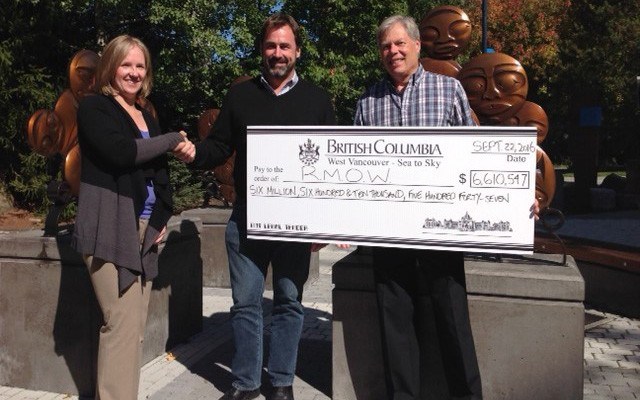There is always that first burst of excitement with Whistler's initial snowfall — even if the white stuff doesn't stick.
Everyone starts to look up in earnest, measuring the snowline as it creeps down the mountain — a feeling of anticipation sidles into everything making trips to Turkey Day sales a little more feverish.
Wandering the sales last weekend it began to feel like winter in no small part because of the number of accents and languages heard in the lineups. Young workers from across the globe were chatting excitedly as they clutched snowboards and socks, skis and jackets — anxiety over housing and survival put aside in the passion that is preparing for the snow season.
But while the incoming workers may be smiling now, will they be in a few months after perhaps living in overcrowded conditions? Sleep deprived and feeling stressed, will they be putting the best face on Whistler this winter?
This is the underlying concern lurking in the resort as stakeholders come to grips with the pressure-cooker issue of housing and the cost of living here.
Last week, bowing under growing public pressure, local government announced at its regular council meeting that it had formed a Mayor's Task Force on Resident Housing. On it will be representatives from the Resort Municipality of Whistler (RMOW), Tourism Whistler, Whistler Blackcomb, the Whistler Chamber of Commerce, the Whistler Housing Authority (WHA), the Hotel Association of Whistler, the Restaurant Association of Whistler and members of the community.
There are already 6,200 resident-restricted beds in the community thanks to the groundbreaking work done by previous councils and staff, and the WHA.
However, the meeting didn't suggest any short-term solutions — no instant workcamp-type accommodation is suitable, according to RMOW staff.
So for this winter it seems to be just status quo — of little comfort to those seeking shelter and to businesses desperate for workers. Skilled workers are not putting Whistler on their list, as housing is too much of a problem.
Mayor Nancy Wilhelm-Morden did say that a second building site is being transferred to the WHA and, all things being equal, that $7-to-$8 million building will come on board mid-2018.
Great.
The WHA's Cheakamus three-storey, 100-bed unit will come online mid-2017.
One thing that stays constant in all these discussions around housing and living in Whistler are the people.
The reality is the tourism engine would not rev if it weren't for the workers behind it. One in every 15 workers is employed by tourism in B.C. From January to June this year, 2,307,624 international visitors came to B.C., a 12.4-per-cent increase (254,935 additional visitors) over the same period in 2015.
With that logic in mind, it is unfortunate that an argument couldn't be made to use some of the Resort Municipality Initiative (RMI) funds to build employee housing. After all, it's not just the resort of Whistler that is struggling with this issue. Tofino has long contended with the difficulties around employee housing. Indeed, to some extent affordable housing is a bit of a national crisis.
This year, Whistler has received $6,610,547 of the total $10.5 million RMI handed out to the 14 Resort Collaborative partners.
That may seem like more than our fair share, but let's keep in mind that Whistler contributes $1.37 million a day in tax revenue to the federal and provincial governments. Whistler is responsible for an estimated 25 per cent of the entire annual tourism export revenue of British Columbia, up from 21.2 per cent in 2012.
Through the province's RMI, Whistler has received a total of $74,218,753 since 2006. Some of the RMI-funded projects in Whistler include: trail development, cultural celebrations and events such as Tough Mudder, Subaru Ironman Canada and the Whistler Children's Festival. It's also been used for the construction of the outdoor ice rink, a BMX track, an Olympic Games legacy art piece and the Cultural Connector route linking six distinctive cultural properties to explore in Whistler.
But maybe it's time to re-think the direction of some of that funding? Would it be possible to make the case that some of the RMI finds be used to build housing that supports tourism workers?
For now, RMI funding is secure until December 2017, but the government has always said after that the funding is up for discussion. Maybe housing should be part of that discussion.




